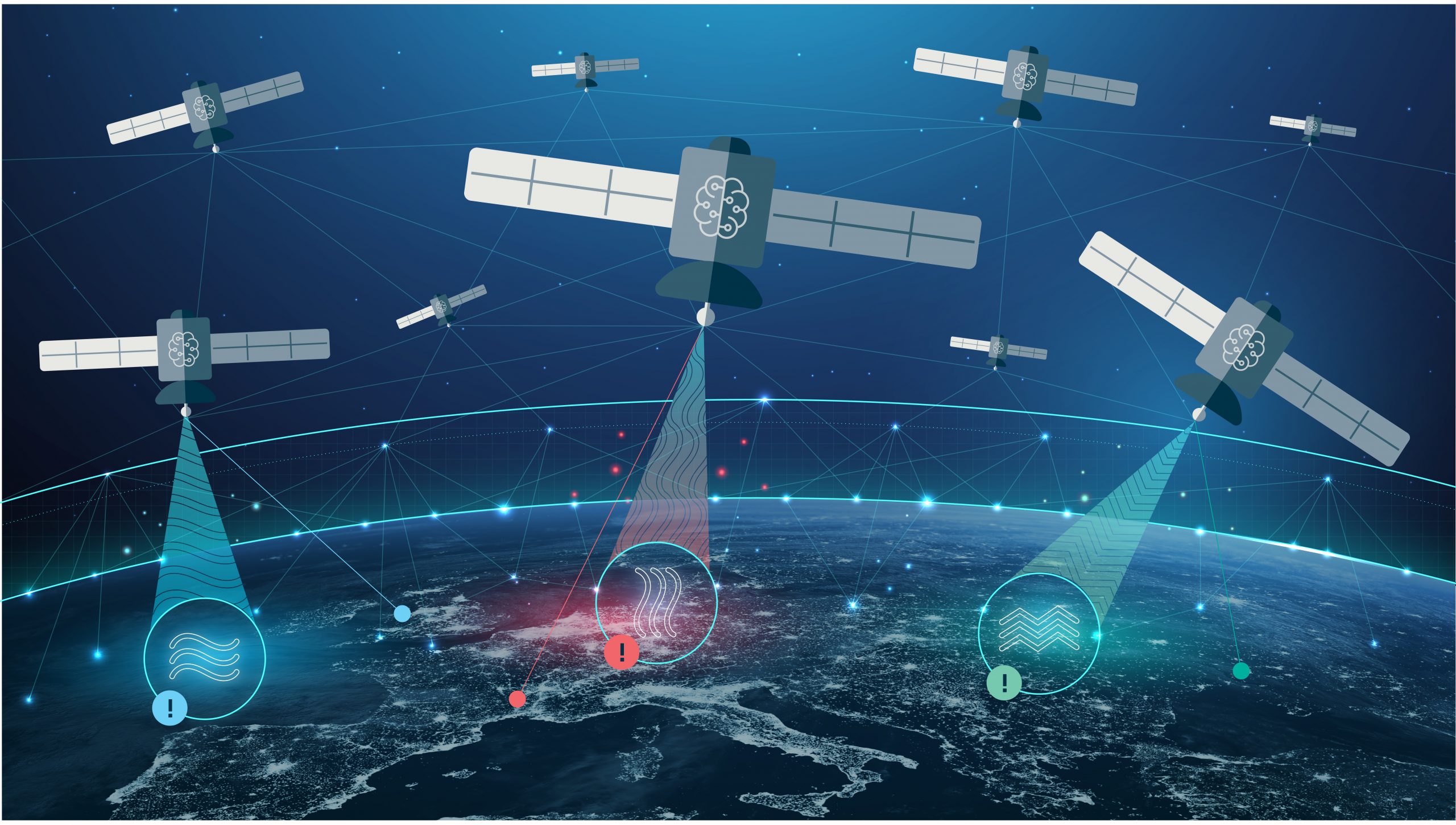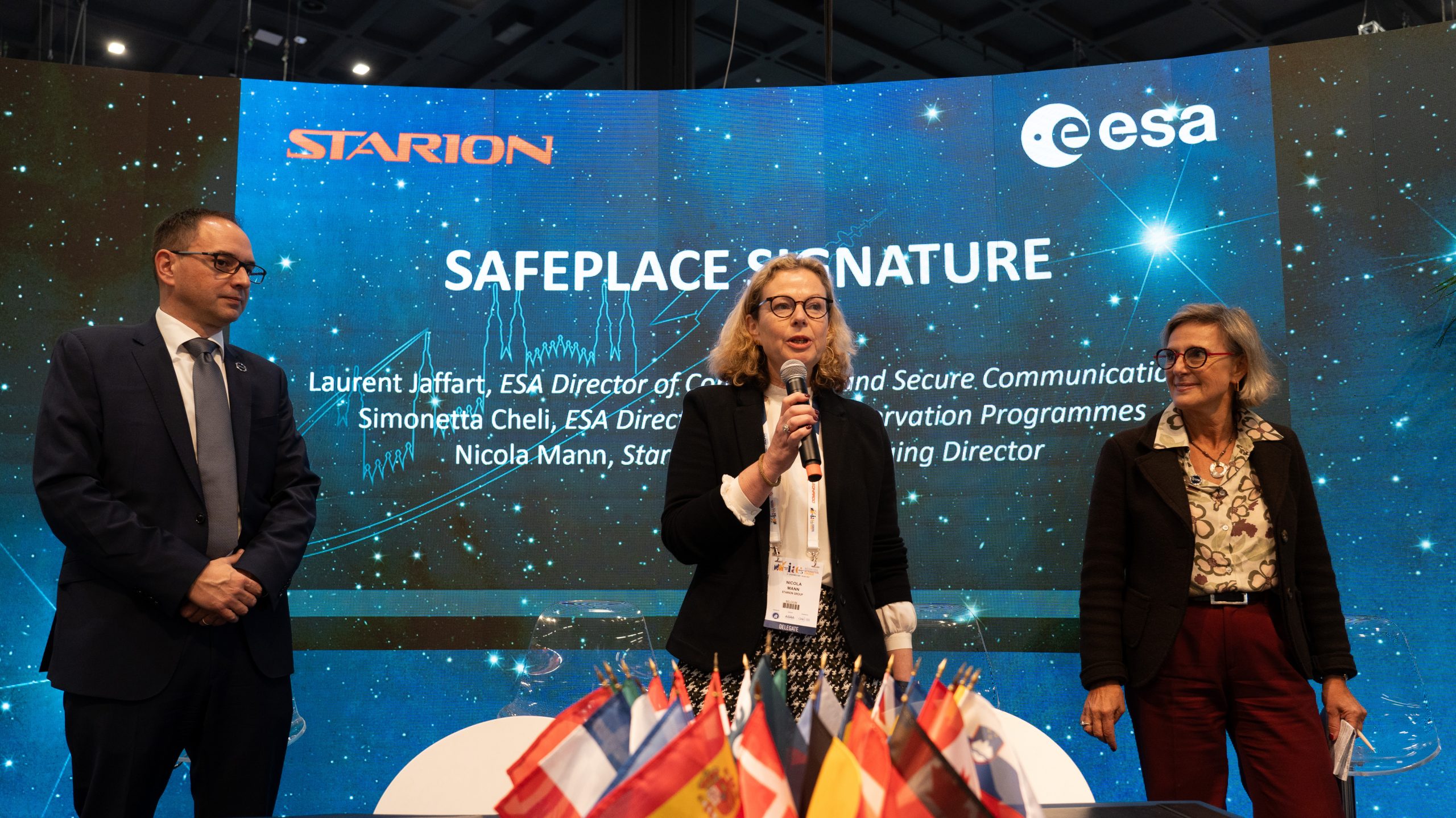Accelerate the use of space
Rapid and resilient crisis response
Intelligent interconnectivity between space and the ground empowers rapid, resilient responses to crises on Earth.

What’s the problem?
Economic, geopolitical and environmental crises impact citizens across Europe and the rest of the world. Natural disasters, extreme weather events, cybercrime and cyber security are amongst the most clear and present dangers faced by the world, according to the World Economic Forum’s 2024 Global Risks Report. Disruption from such events can result in a range of severe impacts, from technical failures to restrictions on the supplies of food, energy and water.
Why act now?
To save lives and livelihoods, Europe urgently needs space-based rapid and resilient response capabilities to reinforce ground-based systems that can become compromised by natural disasters or malicious actions.
Flooding, wildfires and geopolitical instability, for example, can cost billions of euros and result in loss of life. According to data from the UN Refugee Agency, nearly 6.5 million refugees have been recorded from Ukraine alone.
Meanwhile, the economy increasingly depends on secure and resilient information in numerous industries, including banking, manufacturing and transportation, with cybercrime widely projected to inflict an estimated €10 trillion in damages by 2025
What is needed?
Sensors deployed in space, combined with aerial and ground-based equipment, will ensure full, consistent and timely collection of data. The information will be securely sent and received, providing a fast and secure interconnected network to ensure the safety and prosperity of citizens.
Timely and accurate high-resolution information will support governments and emergency responders during times of disaster, through imagery to improve situational awareness. Meanwhile, secure communications will allow those on the ground to respond efficiently and receive the latest information from a range of reliable sources without delay.
The systems will use new technologies, including artificial intelligence, smart autonomous networks, high-performance computing and quantum technologies
Who will use it?
Emergency responders, health professionals, civil protection organisations, environmental agencies, governments, businesses, critical infrastructure stakeholders and individual citizens.
Why do this in Europe?
Crisis information management systems will bolster Europe’s use of space systems for civil society, including humanitarian action, and support European autonomy in food, energy and water supply. They will enhance Europe’s digital independence in information handling and communication across industry.
What’s the next step?
Working closely with the EU, national governments, international organisations, public agencies and private entities, ESA is assessing partners’ needs, identifying gaps in the current provision, and proposing system architectures and building blocks. Individual EU and ESA member states will be invited to champion the rapid and resilient crisis response accelerator or the elements within it.
What are the wider benefits?
Those living and working in Europe will be better protected during times of crisis. Their governments will be able to deliver more robust services by improving the timely intervention of civil protection services, as well as the safe operation of critical infrastructures, and the secure production and supply of food, medical support, energy or water. European businesses and citizens will be able to more rapidly address disaster events using secure and timely information.
Download the factsheet
Rapid and Resilient Crisis Response Accelerator
Read more about the accelerators

